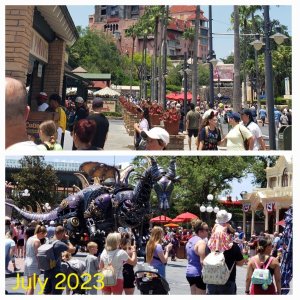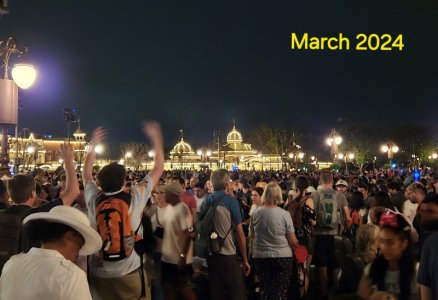Yes, it is important to note that a rising tide does not lift ALL boats. Although our (Canadian) economy has improved greatly since COVID, that's not true for everyone. I'll never complain, and am reminded every day how blessed I am, but my salary has not gone up in quite some time.
But overall, in the States, as I mentioned things are (relative to the rest of the globe) looking very good. For example, in June the Bureau of Labor Statistics posted that average wage growth exceeded inflation for the 12th straight month, which is a remarkable run, and the envy of the world. This would in part fuel the ability of Americans to travel abroad.
Back to Disney - IF crowds are lower this summer (we go next month), I would bet it's because of a combo of all the things previous posters said. Higher prices at Disney turning off some; "revenge travel" slowing down; and others choosing to head overseas, perhaps because of a good deal/strong dollar, or even that many put it off over COVID, because of health concerns, or travel restrictions in many destinations.



